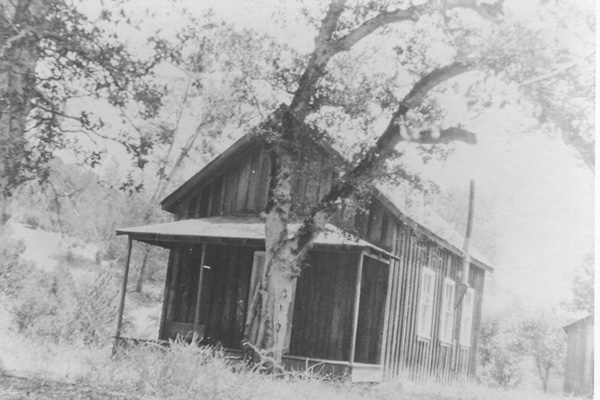Zane was a Dude to Uncle Edward
(Editor’s note: In May of this year (1967) this article appeared in a Salem,
Oregon newspaper. It was written by James Flanigan, formerly of Emmett, who is now working for the Capital Journal newspaper in Salem.)
Uncle Edward was the most unforgettable character I have ever known. Actually he was in the winter of his life when I met him, so all the tales about him are by hearsay.
It was almost hard to believe some of the stories of his encounters with the Indians and long winters in the wilds when you looked at him then. He was a frail old man with hollow cheeks and just a wisp of silver hair, but the way he still chewed tobacco led you to know he was a rough and ready guy for his size way back when.
Visions of the old man in bolder days came easy when you read a Zane Grey book from the collection in the living room of his big white ranch house or watched the cow hands go about their business.
A Different West
Uncle Ed probably would have had a twinkle in his eye, though, if he knew I’d given so much weight to Zane Grey’s old West. Uncle Ed had met the Western writer once when he came to Idaho to research a book, and promptly labeled him a dude.
When Uncle Ed was just a boy, he got his first real taste of the True Old West. His family was caught in the massacre of Whitebird Hill. Uncle Ed, then a frightened boy, crouched beneath a bed and watched as his father was murdered. His mother and the children escaped. They headed southeast over the mountains until they reached the mining town of Warren, a good many miles from the death scene.
Warren was a wild place with miners and gambling and all. Uncle Ed grew to manhood there.
Throughout that maturing process, there was one particular night that stood out vividly in his memory. He watched in a local bar as a young Chinese girl he had played with as a youngster was gambled away in a card game. The story of the incident later was told in True Magazine.
Horseless Ed
Uncle Ed eventually started carrying the mail by foot between Meadows Valley and Warren. During the winter, snowshoes were required to make the rugged trek because of high drifts and sudden blizzards.
There were Indians in those days, too, and they weren’t friendly, always. Once Uncle Ed came across a raiding party of savages while out alone, but a flight of ducks saved him. Just at the moment the Indians would have spotted Uncle Ed’s scalp, the ducks flew over the timber like a cloud bearing a silver lining. The diversion gave him just enough time to find a secure hiding place until the Indians had departed.
A Bank Director
Uncle Ed finally got into the cattle raising business and he built one of the biggest spreads in New Meadows. He became so prominent he even served as a local bank director.
But the outdoors was his first love. In cattle drives they said he could ride better and rope better than any other man about. His small frame afforded him agility.
They ran a picture in a national magazine of Uncle Ed and his kinfolk a few years before he died. Standing next to a wood rail fence, his light-blue eyes stood out in the photograph, reflecting a wisdom that few men realize in a lifetime.







Leave your feedback: